Our mental and emotional well-being is essential for leading a satisfying and healthy life. However, mental illness can creep into our lives and make us feel anxious, stressed, and even depressed. Our mind and body often give us subtle signs and symptoms of mental illness as warnings that we should never ignore. Let’s explore some warning signs of mental illness on this World Mental Health Day 2023.
What Is Mental illness?
A mental illness is a condition that affects a person’s thoughts, feelings, behavior, or moods. These impairments have a significant impact on day-to-day life and may affect one’s potential to relate to their surroundings.
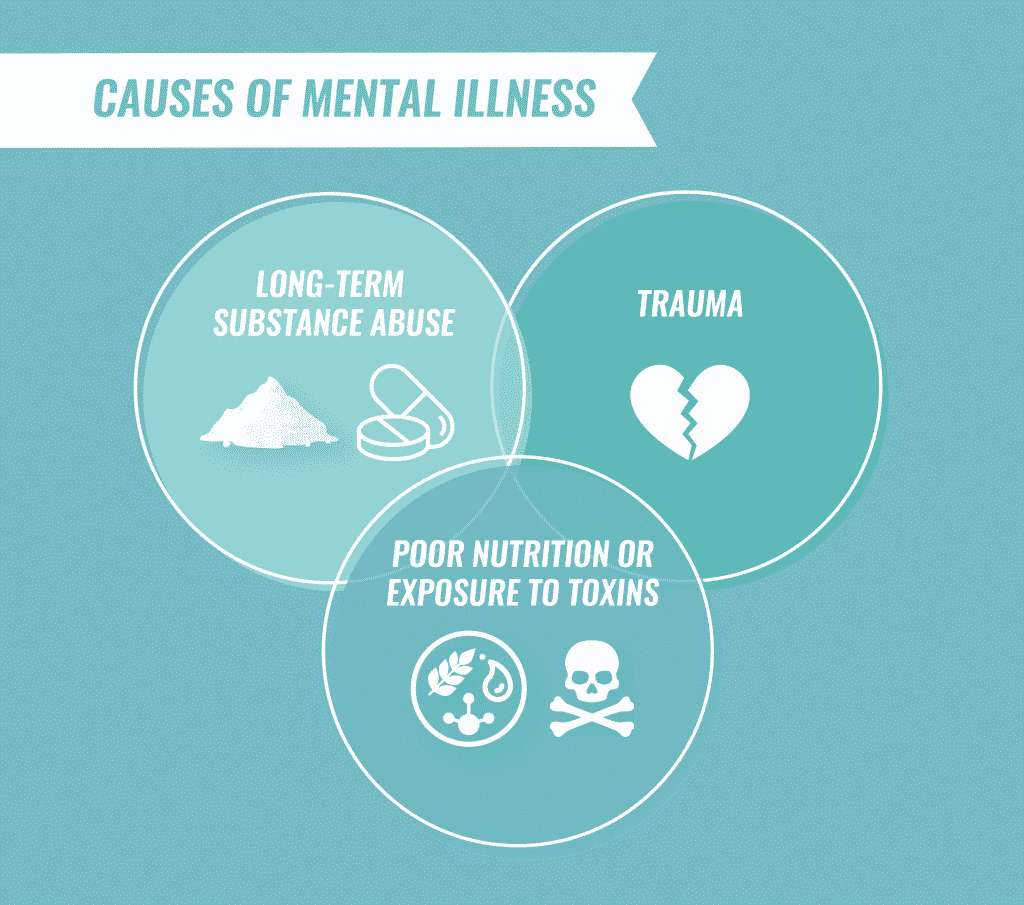
Can Mental Health Disorders Affect Anyone?
Did you know that around 44 million U.S. citizens suffer from some mental illness every year? Most of us believe that mental disorders are rare. We tend to think that it always happens to others.
But the truth is, signs and symptoms of mental illness are far more common than we believe. Moreover, it can affect people of all ages and all walks of life. It can not only make us anxious and withdrawn but also affect our ability to function normally in our daily lives.
Although we may not know what actually causes such mental illness, we can learn to identify the signs and recognize them during the early stages. This can help us to overcome these mental conditions and live a happier, more confident life, especially on the World Mental Health Day 2023.
But how to know if you have mental illness? Let’s find out the warning signs of mental illness.
Related: What is Mental Health And Illness?
12 Signs and Symptoms of Mental Illness to Look Out For
It’s true that most of us feel stressed and anxious every now and then. And the fact is, some level of anxiety can actually be healthy for us. However, when such negative feelings persist for over 2 weeks and start to affect our thinking, emotions, behavior, mood, and daily life, then it may be a cause for concern.
So if you are going through a rough patch or experiencing certain mental health symptoms, then here are a few warning signs and symptoms of mental illness that you must watch out for to identify and underlying conditions early:
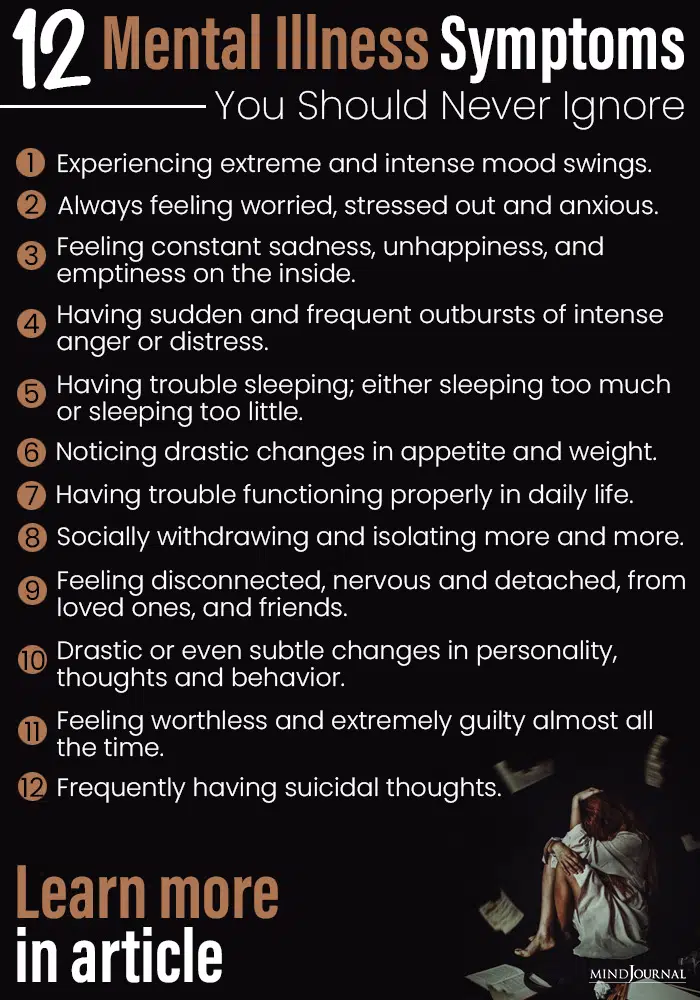
1. Extreme mood swings
If you are experiencing intense mood swings more frequently, then it might be a signal for a more serious psychiatric issue. According to the American Psychiatric Association, “Rapid or dramatic shifts in emotions or depressed feelings,” can be a sign of mental illness.
Although most of us feel a range of emotions depending on experiences and situations, random, unreasonable, and dramatic shifts in mood and emotional outbursts usually point towards depression and other mental disorders.
Angry outbursts over seemingly insignificant things, crying profusely without any particular reason, excessive euphoria, and depressed feelings are things that you need to take seriously. This is how to know if you have mental illness.
Related: Should A Man Tell His Family and Friends That He Is Suffering From Mental Illness?
2. Feeling worried and anxious
This is one the most common warning signs of mental illness. With our busy and stressful lives, it’s normal for us to experience some level of anxiety. In fact, some stress and anxiety can actually be good for us. Professional counselor Dr. Katharina Star, Ph.D. explains “Scientists have learned that some degree of stress or anxiety isn’t necessarily a bad thing.” Good stress or eustress “keeps us motivated and excited about life,” she adds.
However when stress, anxiety, and nervousness start to affect your physical health and your ability to function normally in daily life, then it can be a sign of mental illness.
According to the National Institute of Mental Health (NIMH), the inability to control your worries may point towards the development of generalized anxiety disorder (GAD).
Anxiety can lead to other symptoms like restlessness, insomnia, shortness of breath, heart palpitations, racing thoughts, headaches, agitation & irritation, diarrhea, etc. You should seek professional help if you experience anxiety and related symptoms for over 6 months on a daily basis. This is one of the most common signs and symptoms of mental illness.
3. Experiencing chronic sadness
If you feel constant sadness, unhappy, teary, and empty inside for over two weeks, then it may mean that you are experiencing depression. Sadness is a normal part of the human experience.
However, according to the Diagnostic and Statistical Manual of Mental Disorders, 5th Edition (DSM-5), when you experience chronic sadness and loss of motivation for at least 2 weeks, then it can be diagnosed as depression.
You may experience depression even though you may have a great life, a successful career, healthy relationships, and a perfect social life. Depression is a clinical condition that can affect anyone. So you need to take it seriously and consult a mental health professional.
4. Extreme emotional outbursts
Sudden outbursts of intense anger or distress can be a clear symptom of mental illness. Most of us become angry at times and often feel we are unable to control them. This may be caused by high stress levels and may even lead to anxiety if left untreated and unresolved.
So if you are experiencing frequent angry outbursts, then it can be a cause for concern. It can often be the result of depression, OCD, trauma, bipolar disorder, alcohol abuse, and even intermittent explosive disorder. Although we shouldn’t suppress our emotions, including anger, we should be able to control it before it harms others or ourselves. This is how to know if you have mental illness.
5. Trouble sleeping
According to the National Sleep Foundation, adults require 7-9 hours of sleep, but not less than 6 hours or more than 10 hours on a daily basis. However, when you find yourself sleeping too much or too little, then it may mean that you are coping with certain mental health issues like anxiety, depression, substance abuse, or a sleeping disorder.
Around 10-18% of the general population experiences sleeping problems. Sleep deprivation, insomnia, and oversleeping are commonly experienced among people with mental illness.
Moreover, about 50% of individuals suffering from bipolar disorder, depression, or ADHD experience hypersomnia or insomnia. So make sure to pay attention to your sleep cycle.
Related: Mental Health: The 10 Types of Sleep Disorders
6. Gaining or losing weight unintentionally
If you are experiencing drastic changes in your appetite or weight, then you need to consider them seriously as they are a prominent sign of mental illness. Rapid weight gain/loss or fluctuating weight can often be a result of an eating disorder, major depression, or some other mental health issues.
It can also lead to a loss of interest in eating or it may make you more prone to binge eating as a coping mechanism for your emotional issues.
If your change in appetite persists for over 2 weeks, then it is best to seek help. A proper mental health assessment under the supervision of a professional can help you understand any underlying behavioral health issues.
Looking for more warning signs and symptoms of mental illness? Keep reading to know more on this World Mental Health Day 2023.
7. Having trouble functioning in daily life
Do you have trouble getting through your day? Has your ability to perform at school or work declined? If you are having difficulties in performing daily activities, family responsibilities, and other social activities, and if there’s a noticeable fall in your performance level, then it may mean that you are coping with a mental illness.
According to the Australian Department of Health, the inability to function properly in normal situations and experiencing a rough patch for over 2 weeks can be a sign of anxiety or depression. In fact, loss of interest in activities that you previously enjoyed is one of the most common signs of major depressive disorder.
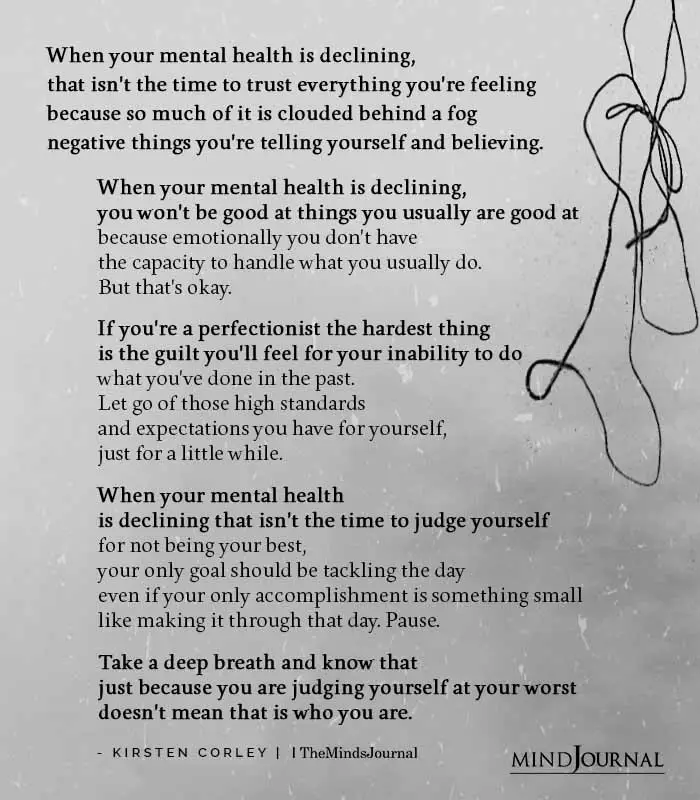
8. Isolating self
Social withdrawal and isolation is one of the most fundamental warning signs and symptoms of mental illness that you should never ignore. All of us need some “alone time” on a daily basis. However, we also need to socialize and spend time with our family and friends.
But when you repeatedly withdraw from social interaction and isolate yourself, then it may hint at some underlying mental health disorder.
Being alone for an extended period of time can act as a symptom of depression, bipolar disorder, or psychotic disorder. So if you are constantly making excuses to cancel plans or avoid parties & events, or avoiding socializing, then you need to talk about it with someone you trust or see a mental health specialist. This is one of the major warning signs of mental illness that can help you understand how to know if you have mental illness.
9. Feeling disconnected
If you start feeling disconnected from your romantic partner, your family, your friends, or even your surroundings, then it’s time for you to take notice. When you feel detached from everyone and everything around you, feel excessively nervous and become extremely suspicious of your loved ones, then it can be a warning sign of mental illness.
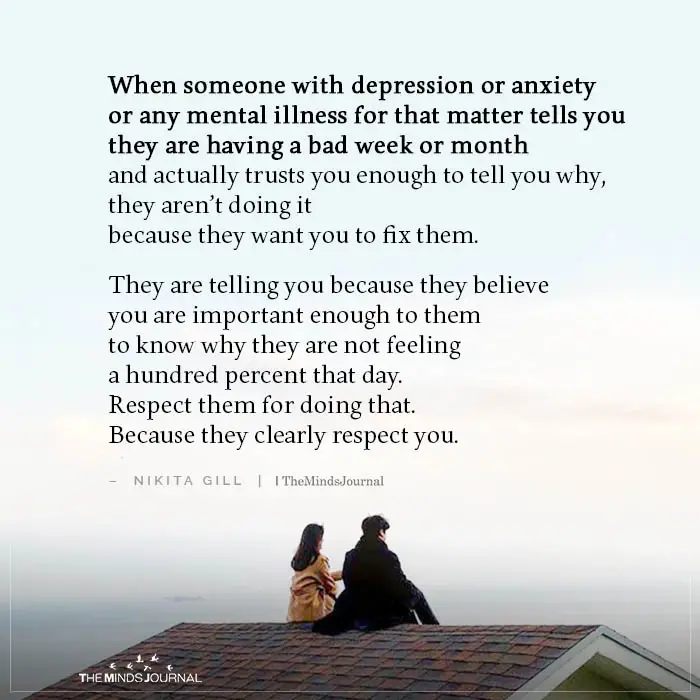
Related: How Mindfulness Can Improve Your Overall Mental Health
10. Personality and behavior changes
As mental illness generally develops gradually, it can often bring about subtle changes in our thoughts, beliefs, perspectives, mindset, behavior, and even personality.
If you realize or if others tell you that you are behaving oddly, then you need to pay attention. Personality changes can be a glaring sign of mental illness and it’s crucial that you speak to someone about it.
11. Feeling worthless and extremely guilty
Persistent negative thoughts can often hint at deeper psychological and emotional issues. If you are having unreasonable thoughts of worthlessness and often feel guilty for no reason, then you may be suffering from some mental illness.
Consistent negative self-talk, having low self-esteem and self-criticism can be a sign of depression and even lead to suicidal thoughts and behavior. Make sure to take this warning signs of mental illness seriously. This is how to know if you have mental illness.
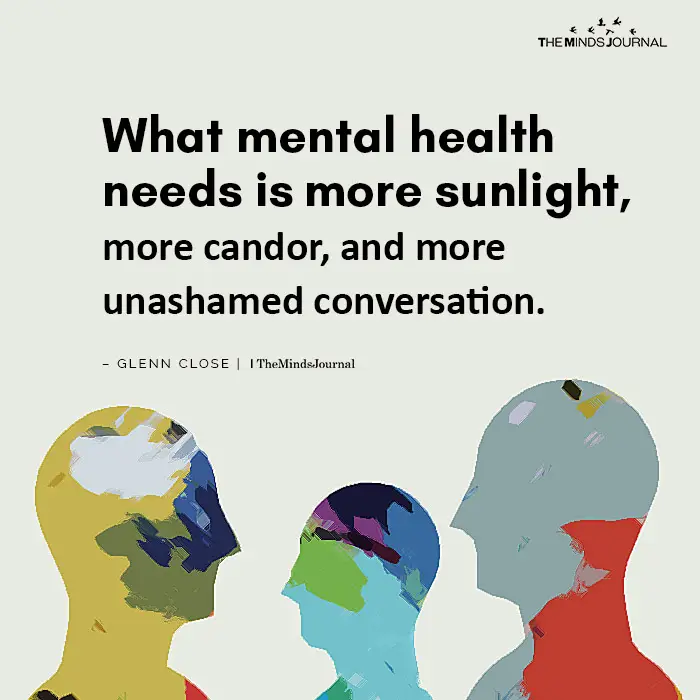
12. Having suicidal thoughts
According to a recent report from the Mental Health Foundation, around 10% of adults under the age of 30 have had thoughts of self-injury or have considered suicide. Suicidal thoughts can arise from a number of experiences like trauma, abuse, emotional neglect, loss of a loved one, a significant life event, or even depression.
It is believed that about 90% of people who have committed suicide have suffered from some form of mental illness.
According to a recent 2018 study, “Most suicides are related to psychiatric disease, with depression, substance use disorders, and psychosis is the most relevant risk factors. However, anxiety, personality-, eating-, and trauma-related disorders, as well as organic mental disorders, also contribute.”
So if you are having suicidal thoughts or have considered harming yourself, then you need to reach out to your loved ones or call a suicide prevention helpline immediately. It is highly recommended that you speak with a mental health professional as well. It is possible to recover fully with treatment and support.
Apart from these, there are some other prominent signs and symptoms of mental illness that you should never ignore on the World Mental Health Day 2023, such as –
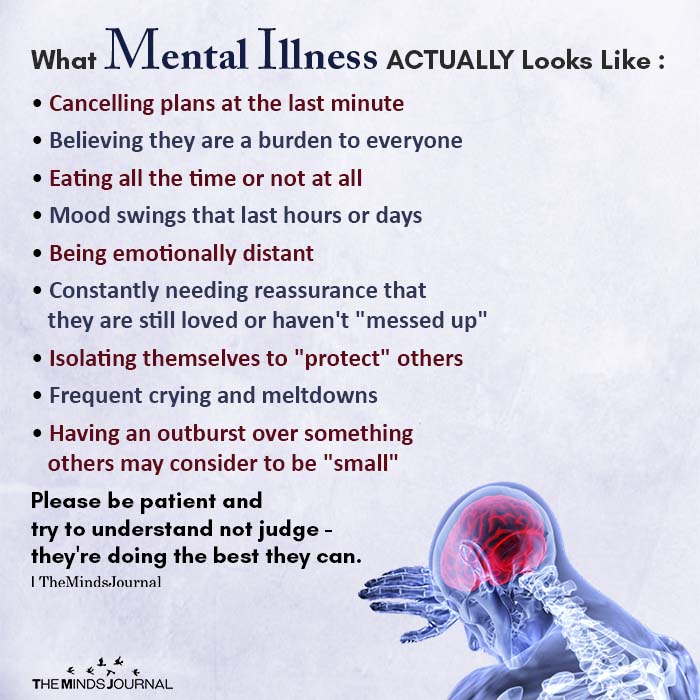
- Confused & illogical thinking
- Intense fears, worries and anxieties
- Lack of insight
- Abnormal thoughts or delusions
- Seeing or hearing unreal things or hallucinations
- Unexplained multiple physical aches and ailments
- Increased sensitivity
- Hyperactivity
- Changes in sex drive
- Chronic pain in gut
- Apathy
- Unable to manage responsibilities
- Substance abuse
- Defiance of authority, vandalism or criminal behavior
Related: Gut Health & Mental Health: Understanding The Gut-Brain Connection
Seek help, because you’re not alone
If you are experiencing some or all of these signs and symptoms of mental illness, then it is important that you speak to a loved one and seek immediate professional help. Early identification and treatment can greatly help you overcome these signs and symptoms.
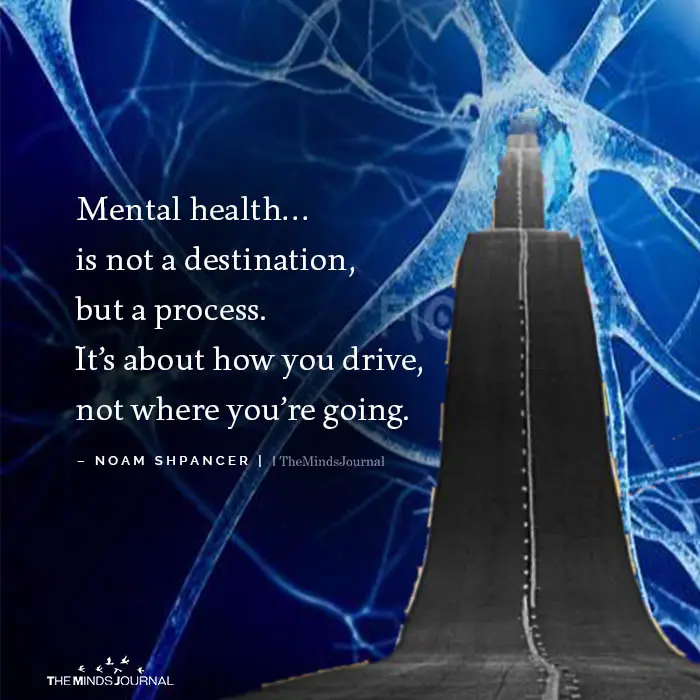
When coping with mental health issues, talking to a trusted family member or friend can make a huge difference as their support can encourage you to take the necessary steps to overcome your mental illness.
So talk to a loved one or call a helpline or speak with a doctor to get the help and treatment you need and deserve. Treatment can enable you to change your thoughts & behaviors and empower you to live a healthier and happier life.
Frequently Asked Questions (FAQs)
What are the 5 signs of mental illness?
Feeling sad and hopeless, muddled thinking, limited capacity to focus, excessive anxieties or worries, mood changes, and withdrawal from surroundings are the five signs and symptoms of mental illness.
What is mental illness caused by?
There are multiple factors that can lead to mental illness such as genes, abuse, following a traumatic event, stress, etc.
What can trigger mental illness?
A trigger is a replay of a past traumatic event. This reminder might make a person feel depressed, anxious, or panicked. It may also produce flashbacks in certain people of the unpleasant memory.
At what age does mental illness start?
Mental illness can start at any age, from childhood to later adulthood, but the majority of instances start in the teenage years. Mental health conditions can have short-term to long-term effects.
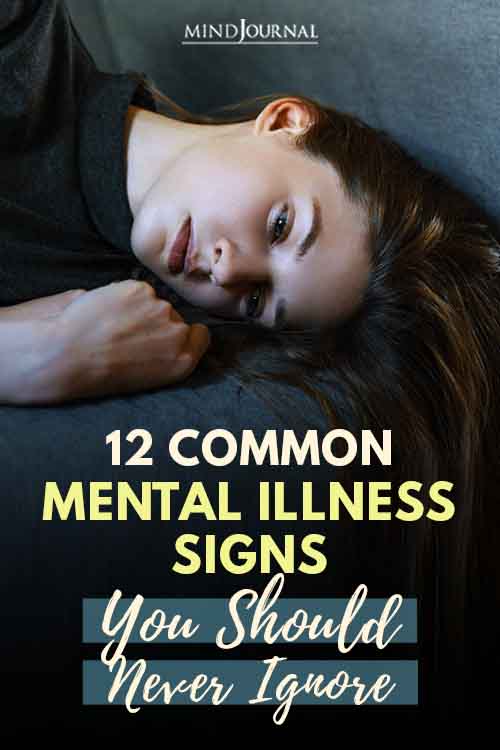

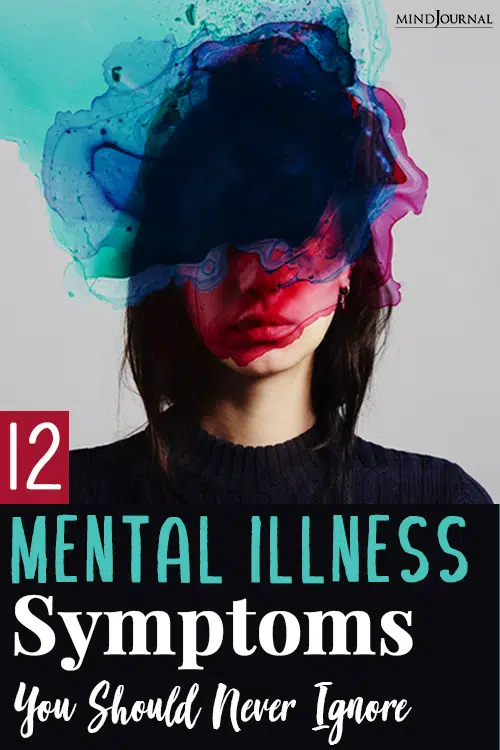
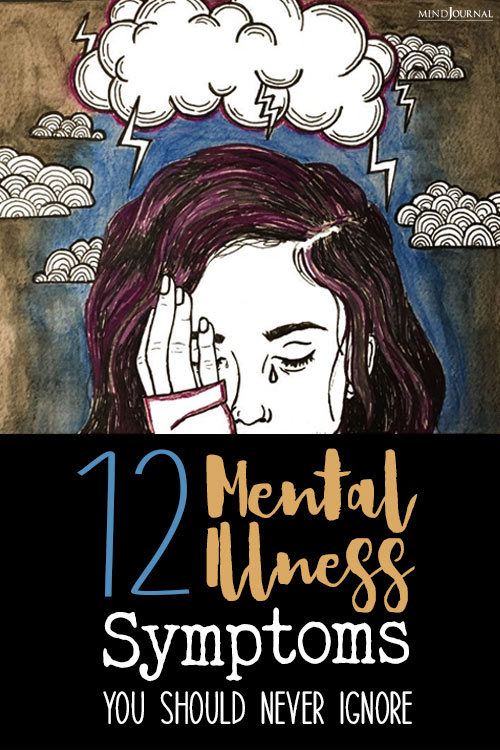
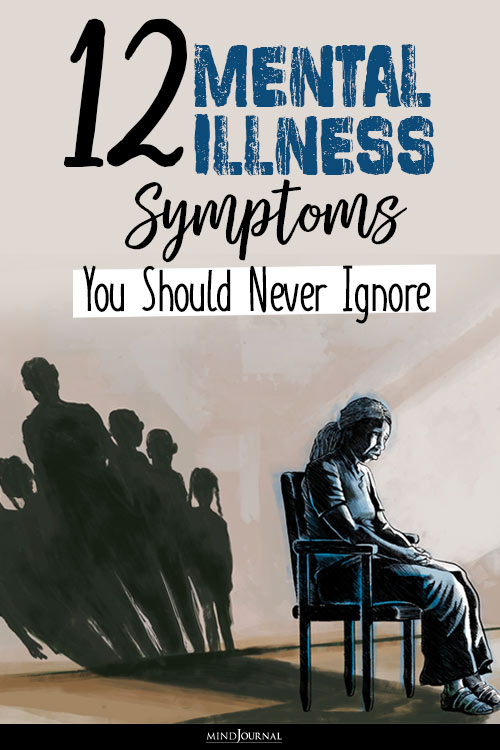
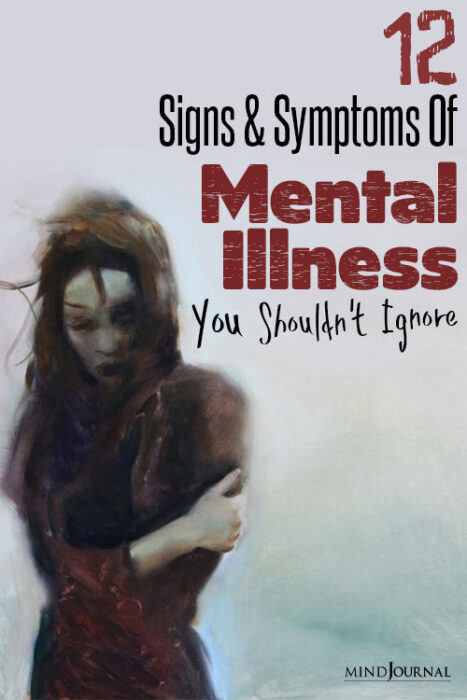
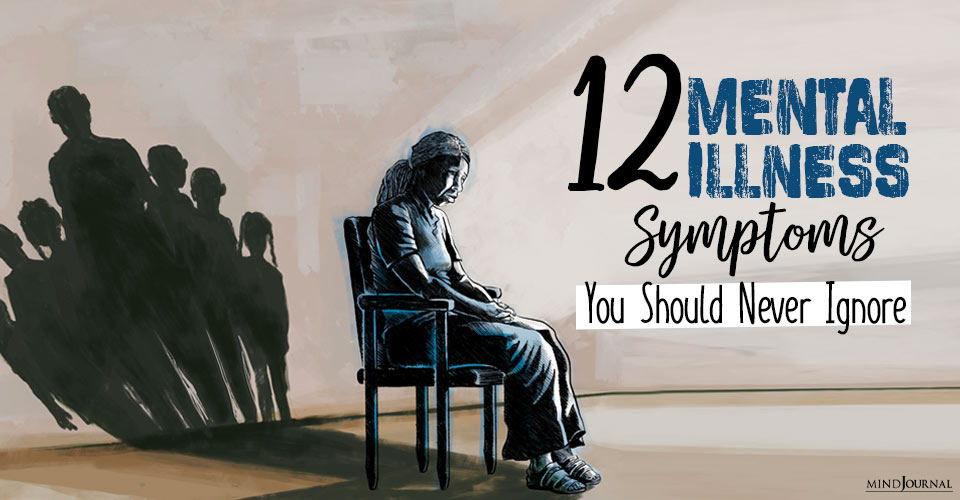







Leave a Reply
You must be logged in to post a comment.